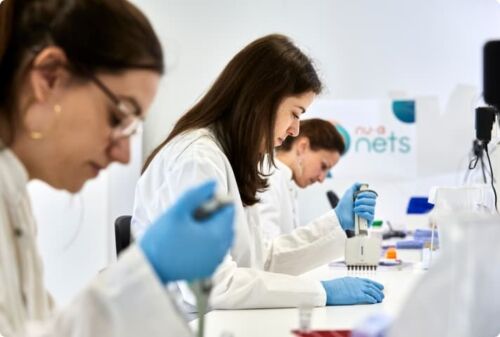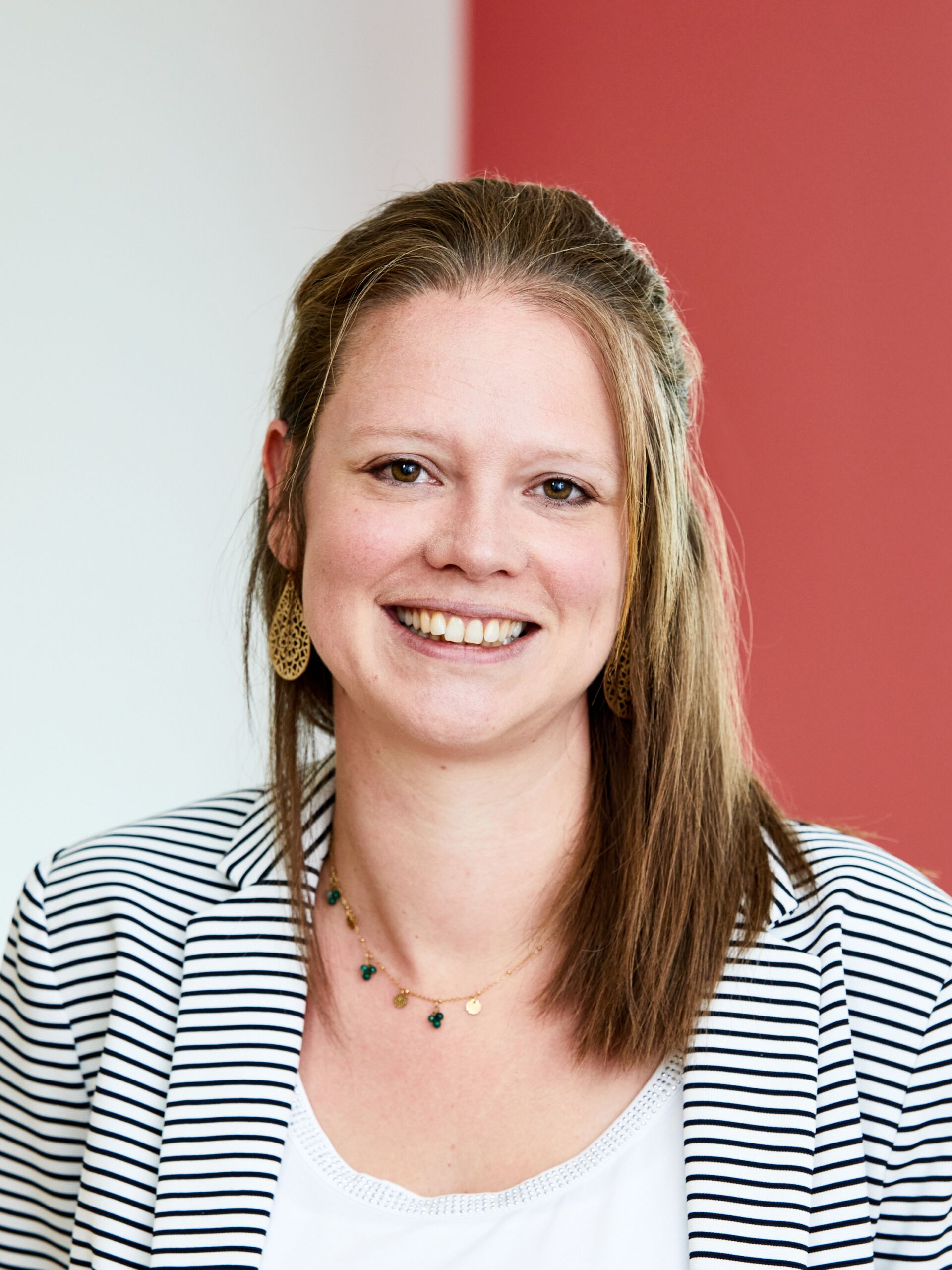- Nu.Q® Technology
Our technology detects characteristic epigenetic changes in nucleosomes that occur from the earliest stages of cancer, sepsis and other diseases.
-
- Our Tests
- Human Health
- Nu.Q® NETs
Nu.Q® NETs is a groundbreaking CE-marked diagnostic solution that clinicians can use to detect NETosis.
- Nu.Q® Discover
Buy our Nu.Q® Discover H3.1 Research Use Only Assay
- Animal Health
- Nu.Q® Vet Cancer Test
Nu.Q® Vet Cancer Test is an affordable, accessible blood test that detects cancer in dogs.

Celebrating Women in Science: Insights from the women working in science at Volition
- Share
- Tweet
- Share on Facebook
- Share
This is the second blog in our series celebrating International Day of Women and Girls in Science and Women’s History Month. At Volition, we are proud to have incredible women working in science-focused roles, leading research, driving innovation, and shaping the future of diagnostics. We spoke to some of these women about their journeys into science, what excites them about their work, and their hopes for the future of women in the field.
For many of these women, the journey into science was sparked by curiosity and a desire to make a difference. Fanny Lambert, Cell Culture Manager, recalls that choosing to study biomedical sciences allowed her to explore “how the human body works while contributing to improving global health.” She quickly realised that “the more we understand, the more questions we raise.” This ever-growing curiosity continues to drive her work today.

For Nathalie Hardat, Biostatistics Expert, personal experiences played a key role. Having witnessed illness in her family, she became passionate about health sciences from a young age. Initially drawn to psychology, her love for mathematics led her to specialise in biostatistics. “One of my high school teachers predicted ‘You will end up having a career related to mathematics!’” she recalls.
One common theme among these women is the sense of purpose in their work. Marielle Herzog, Director of Research & Development, finds excitement in seeing the direct impact of her team’s work. “Knowing that the tests we develop in our laboratory can have a real impact on patient care is particularly meaningful. Contributing to solutions that can improve medical decisions and patient outcomes gives a strong sense of purpose to our work.”

Julie Candiracci, Clinical Research Manager, agrees. She believes that science is about collaboration. “As the saying goes, ‘Alone we go faster, but together we go further.” This collaborative spirit is something she values deeply in her role at Volition.
Role models play a crucial role in inspiring and shaping the careers of women in science. Many of the women at Volition credit influential figures—both historical and personal—for guiding their journeys. Nathalie Hardat draws inspiration from Ada Lovelace, who pioneered the first programming language and Marie Curie, the only woman to win two Nobel Prizes. But role models don’t have to be famous—sometimes, they’re the people closest to us.
“My mum; I owe her some values as never giving up and always fighting for rights and justice.”

Nathalie Hardat
Biostatistics Expert
Similarly, Marielle Herzog is inspired by Marie Curie, not just for her scientific brilliance, but for her unwavering dedication to advancing humanity through science. “I find Marie Curie’s life truly fascinating—she was undoubtedly a pioneer of her time”.
While progress has been made, many of these women recognise the ongoing challenges that exist for women in science. Fanny Lambert hopes to see more diversity in leadership roles, stating, “I would love to see more diversity in the highest positions of science and technology. While access to education and job opportunities is becoming more inclusive, higher positions are still not equally representative. The next generation of scientists should have the opportunity to lead—whatever their gender, origin, or background—and play a key role in shaping the future of research and technology.”
For Julie Candiracci, real inclusivity means tackling biases at every level: “A cultural shift towards true inclusivity is essential. Making science truly inclusive means addressing unconscious bias, investing in education for girls from an early age, ensuring equitable pay, promoting work-life balance, and providing strong family support policies.”
For young women considering a career in science, these women have a simple but powerful message: go for it. Marielle Herzog encourages them to “Don’t be afraid—go for it! There is absolutely no reason why this field wouldn’t be for you. Believe in yourself, stay curious, and never let doubts hold you back!”
Priscilla Van den Ackerveken, Head of Translational Science Unit, offers an equally strong piece of advice:
“Dream big and stand your ground. Gender or identity should never be a factor in determining what you can or cannot do. If science excites you, if it’s your passion, then pursue it wholeheartedly.”

Priscilla Ven den Ackerveken
Head of Translational Science Unit
And as Fanny Lambert reminds us, learning never stops. “My advice to a woman considering a career in science, would be to follow her intuition, stay curious and never stop learning.”
Looking ahead, the future of science is being shaped by cutting-edge innovations, from AI and machine learning to next-generation diagnostics. Nathalie Hardat sees huge potential in these technologies, emphasising that they must be used as tools to “help reach for excellence”.
Meanwhile, Fanny Lambert sees cell culture as an exciting prospect with vast applications in both research and production. “With its vast applications in both production and research, cell culture presents exciting opportunities.”
The women at Volition are not only excelling in their fields but also paving the way for future generations. Their stories remind us why it is so important to celebrate and support women in STEM—not just during Women’s History Month, but every day.
Related Articles
- Share
- Tweet
- Share on Facebook
- Share

Subscribe for Volition product updates.
Or, click here for Investor Updates and press releases.
"*" indicates required fields